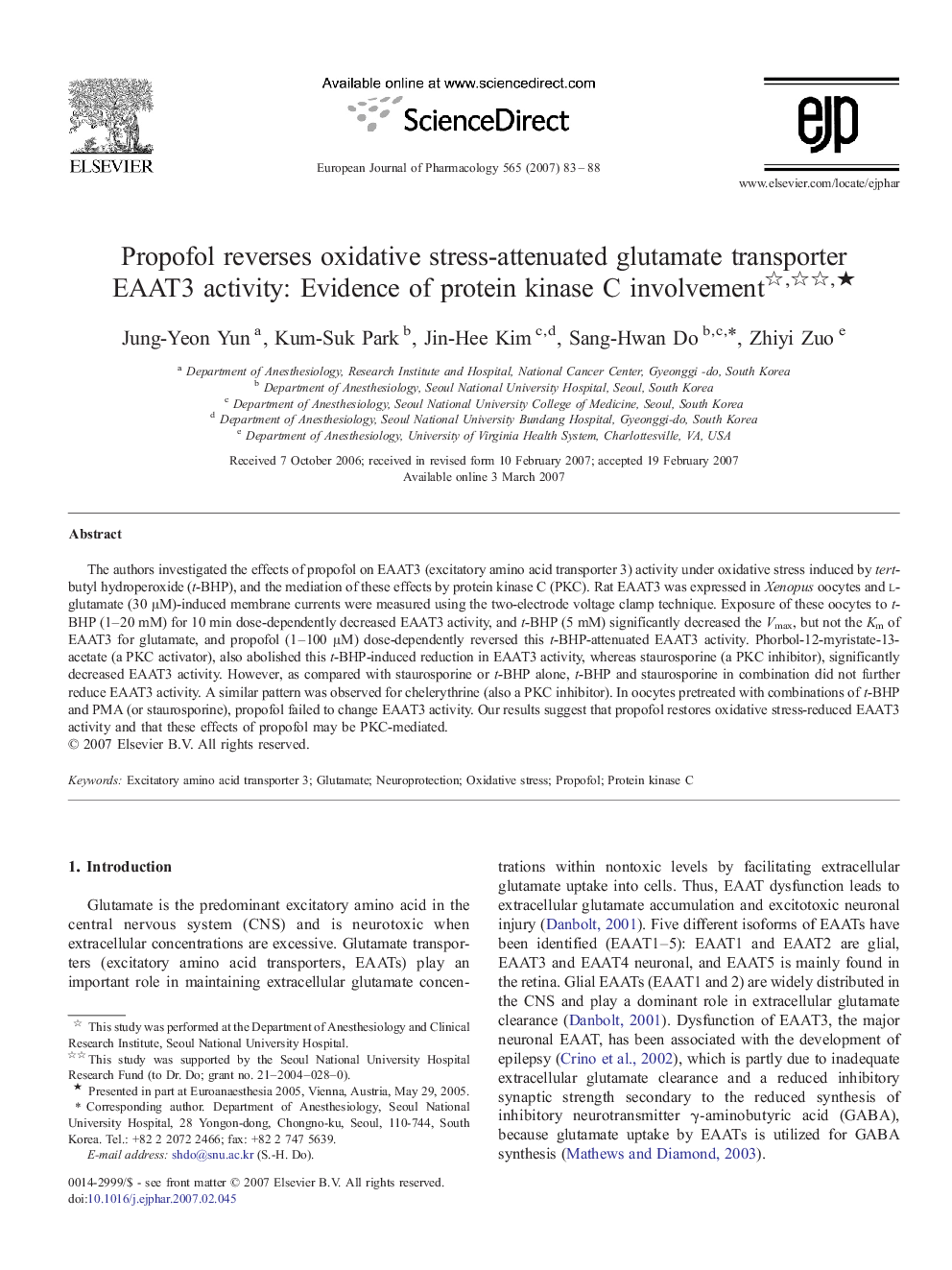| Article ID | Journal | Published Year | Pages | File Type |
|---|---|---|---|---|
| 2536186 | European Journal of Pharmacology | 2007 | 6 Pages |
The authors investigated the effects of propofol on EAAT3 (excitatory amino acid transporter 3) activity under oxidative stress induced by tert-butyl hydroperoxide (t-BHP), and the mediation of these effects by protein kinase C (PKC). Rat EAAT3 was expressed in Xenopus oocytes and L-glutamate (30 μM)-induced membrane currents were measured using the two-electrode voltage clamp technique. Exposure of these oocytes to t-BHP (1–20 mM) for 10 min dose-dependently decreased EAAT3 activity, and t-BHP (5 mM) significantly decreased the Vmax, but not the Km of EAAT3 for glutamate, and propofol (1–100 μM) dose-dependently reversed this t-BHP-attenuated EAAT3 activity. Phorbol-12-myristate-13-acetate (a PKC activator), also abolished this t-BHP-induced reduction in EAAT3 activity, whereas staurosporine (a PKC inhibitor), significantly decreased EAAT3 activity. However, as compared with staurosporine or t-BHP alone, t-BHP and staurosporine in combination did not further reduce EAAT3 activity. A similar pattern was observed for chelerythrine (also a PKC inhibitor). In oocytes pretreated with combinations of t-BHP and PMA (or staurosporine), propofol failed to change EAAT3 activity. Our results suggest that propofol restores oxidative stress-reduced EAAT3 activity and that these effects of propofol may be PKC-mediated.
